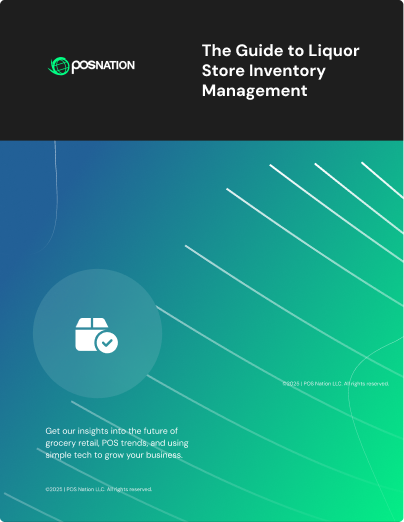Starting a liquor store in Texas isn’t as simple as opening your doors, stocking shelves, and setting prices. Before any of that, you need the proper license.
The licensing process is highly regulated, and missing a step — or submitting the wrong form — can delay your launch by months or force you to start over.
Each year, Texas store owners face delays or denials due to small, avoidable licensing mistakes. Whether new to the industry or expanding your business, understanding (and following) Texas Alcoholic Beverage Commission (TABC) rules is critical to your success.
Here are five things you need to know about liquor license requirements in Texas and how the right tools can support long-term compliance.
1. You Need a License To Sell Liquor Legally in Texas
You can’t sell liquor in Texas without an active license from the TABC, and there’s no grace period to operate while you wait. Violating this rule can result in penalties like a $1,000 base fine or business suspension.
Take liquor license requirements in Texas seriously from the start — it can help you:
-
Avoid legal penalties: Face fewer risks of fines, shutdowns, or permanent license denial by following state requirements.
-
Maintain uninterrupted operations: Comply with sales hours and license-specific rules to keep your store open and in good standing.
-
Build credibility with suppliers: Make it easy for distributors to do business with you by showing valid, up-to-date licensing.
A valid liquor license signals that your business is credible, compliant, and ready to succeed.
2. Texas Offers Multiple Liquor License Types (Choose the Right One)
Texas doesn’t issue a single liquor license for all retail stores. Instead, the TABC offers over 30 permits, and the one you need depends on the type of alcohol you sell and whether it’s for on-site or off-site consumption.
To meet liquor license requirements in Texas, you need to:
-
Apply for the correct permit: Select the one that matches your business. Most liquor stores use a Package Store Permit (P) to sell spirits for off-site consumption.
-
Combine licenses for full coverage: Seek permits for multiple categories to sell a variety of products. For example, if you plan to carry beer, wine, and hard liquor, pair a Wine and Malt Beverage Retailer’s Permit (BF) with a P license.
-
Know which licenses don’t apply to retail stores: Save time and money by avoiding options like the Mixed Beverage Permit (MB), which is designed for bars and restaurants that serve alcohol for on-premise consumption.
Choosing the appropriate license determines what products you can stock and sell to customers at your retail location.
3. Local Approval Is Required Before You Can Get Licensed
Your location must also meet all city and county requirements. Local governments in Texas decide where alcohol can be sold, and they must certify your site before your state application moves forward.
Check your location’s eligibility before applying:
-
Avoid banned zones: Use the TABC Wet/Dry Map to confirm your address isn’t in a dry area prohibiting liquor sales.
-
Adhere to distance laws: Make sure your storefront is at least 300 feet from schools, churches, or public hospitals unless your local government grants an exception.
-
Get ahead of zoning issues: Verify with your city that the property is zoned for retail alcohol sales before signing a lease or submitting your application.
-
Prepare for required certifications: Complete steps like attending public hearings, posting a notice at the site, or obtaining a Certificate of Occupancy if your city requires one.
Checking local requirements upfront keeps you from investing in a location that may not qualify for a liquor license.
4. The Application Process Takes Time and Money
Applying for a liquor license in Texas takes time and planning, with most stores spending a few thousand dollars and waiting about three months for approval.
Here’s what to budget for:
-
Cover the permit fees up front: Expect to pay roughly $1,800 for a Package Store Permit — plus more for add-on licenses or city-level fees.
-
Account for fingerprinting and prep costs: Pay around $40 per person for fingerprinting, and gather all required documentation before applying.
-
Avoid launch delays: Build at least 60 to 90 days into your timeline to wait for approvals, especially if local reviews or hearings are required.
Keep in mind that liquor license requirements in Texas include renewing your license every two years. Missing the deadline could lead to late fees or the temporary suspension of your legal ability to operate.
5. Get Your Paperwork in Order Before You Apply
The TABC application is a package that includes business records, location information, and proof of eligibility. Submitting incomplete paperwork can delay the process and push back your liquor store’s opening.
Get organized early with the correct forms:
-
Prove you control the property: Upload a signed lease, deed, or purchase agreement that confirms your right to operate from the space.
-
Submit your formation documents: Provide a copy of your (Limited Liability Company) LLC certificate, Articles of Incorporation, or other official proof of business registration.
-
Complete all TABC forms and diagrams: Fill out the required packets and submit location drawings through the AIMS portal.
-
Attach state tax documentation: Include your Texas Sales and Use Tax Permit and employer ID number if you’ll have staff.
Preparing everything in advance keeps the process moving and reduces the risk of setbacks due to missing information.
Managing Compliance With Your Point of Sale (POS) System
Once licensed, an industry-specific liquor POS helps you comply with Texas law. It keeps your business audit-ready, tracks alcohol sales, and prevents illegal transactions.
Your POS system should:
-
Scan IDs to verify age at checkout: Reduce the risk of underage sales by prompting clerks to confirm a valid ID before completing the transaction.
-
Track alcohol inventory by category: Maintain accurate records of beer, wine, and spirits to catch shrinkage and stay ready for audits.
-
Run detailed reports for TABC review: Generate easy-to-read reports for regulators, showing what was sold, when, and by whom.
With the right POS, staying compliant is easy, and your day-to-day tasks run smoothly.
Meet Liquor License Requirements in Texas With Help From Your POS System
Liquor license requirements in Texas affect how you operate. You need the right tools behind the counter to meet those standards.
POS Nation connects liquor and convenience store owners with software built to handle real-world compliance needs. Whether operating a full-service bottle shop or a neighborhood corner store, the software supports age verification, inventory tracking, case break handling, and detailed reporting to help you manage risk and keep your license in good standing.
Design your system today with POS Nation’s Build and Price tool. Find the setup that fits your store and get a custom quote today.









 by Brian Sullivan
by Brian Sullivan
![4 Best POS Systems for Beer Stores in 2026 [Features, Pricing, & Reviews]](https://www.posnation.com/hs-fs/hubfs/Blog%20Featured%20Images/POS-system-for-beer-store.webp?width=520&height=294&name=POS-system-for-beer-store.webp)

 by Cort Ouzts
by Cort Ouzts

 by Spence Hoffman
by Spence Hoffman